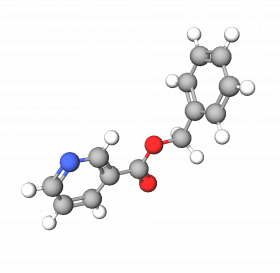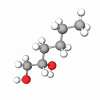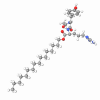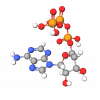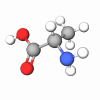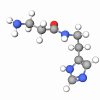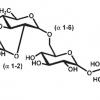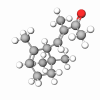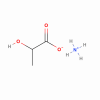Benzyl Nicotinate (3-pyridine carboxylic acid phenylmethyl ester) is an ester of Niacin (nicotinic acid or Vitamin B3) with benzyl alcohol, a member of the nicotinate family of compounds with a rubefacient action on the skin. There are reports of an acute skin flushing (reddening) response induced by several nicotinate compounds when applied topically. This prostaglandin-mediated flush response can be accompanied by a sensation of warmth but also other side effects (e.g., sting, burn, itch).
Topical application of vasodilators that increase skin oxygenation could therefore enhance the effect of radiation on tumors. Nicotinate esters are suitable candidates for studying such effects, especially Benzyl Nicotinate. It acts as a prodrug, which crosses the skin rapidly and, on enzymatic hydrolysis, releases nicotinic acid (Niacin). This vitamin provokes increased cutaneous blood flow, at least partly by forming vasodilating prostaglandins. As a consequence of the dilatation of small arterioles, the skin color changes, and the level of oxygen in the skin increases.
Improved skin oxygenation has a positive effect on the treatment of ischaemic diseases. It stimulates the healing process of damaged skin and increases the effectiveness of radiotherapy in skin cancer treatment. The partial pressure of extracellular oxygen (pO2) influences a number of cellular functions, including growth and metabolism.
Thanks to its ability to increase blood circulation and redness, Benzyl Nicotinate is incorporated into some lip care products where a dermal vasodilating effect is desired. It exposes reddish, plump, and healthy lips appearance while moisturizing, rejuvenating, and softening lines.